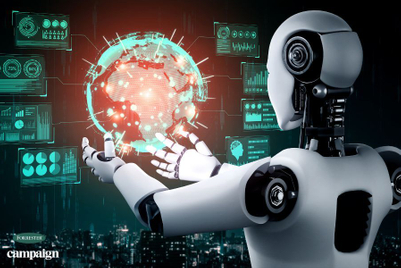
There may be seismic changes happening throughout the industry, but what is undisputed is that content remains at the heart of events. Now the way content is being designed and delivered at events is being rethought – and not a moment too soon.
“A lot of corporations and associations think in communities,” says Oscar Cerezales, chief operating officer – APAC, MCI Group. “They think about creating, engaging, growing, replicating and monetising communities. For example, corporations are changing their marketing spend, creating different events with different engagement and experiences; while professional associations need to increase the level of engagement with their community otherwise they have passive members.
“But the thing we all should bear in mind is content. Whether you’re BMW selling a car or a cardiology conference, you need to create and share content.”
Multiple formats
For many years this meant someone droning on from behind a lectern for an hour or so, then we realised that was boring and started changing things up. But Cerezales would like to see the changes go beyond shortening presentations to a 15-minute TED-inspired talk.
“People are different, and we learn differently,” he says. “One person likes to sit down, listen and get inspired. They will go home and digest everything and do whatever they want to do with the content. But someone else might want to say something. They may like being with a small group and having a debate. Someone else may want to do things, so a workshop style suits them.”

This understanding – and a willingness to do something about it – has led to leading organisers changing the way they design spaces and events, and how content is shared and digested. Cerezales cites Falling Walls as an example, a famed annual conference in Berlin on “future breakthroughs in science and society”.
“Falling Walls is an intersection of new technology, innovation, medicine and many other things,” says Cerezales. “The thinking behind it was: ‘Traditional events are boring, medical and scientific events are boring, but actually things that are happening around innovation in science are super cool.’
“So they created an event that is actually a combination of events. Each event focuses on design with a different learning style in mind. For example, a startup competition is one format, while a big debate on innovation is something completely different.”
Walking the talk
At AIME 2019 in Melbourne, Cerezales ran a knowledge workshop inspired by hackathons. “It was an “ideathon”, a hackathon of ideas,” he says. “We weren’t coming up with an app, we were co-creating a solution out of a big challenge.”
Upon signing up, participants completed a short questionnaire designed to understand their different mindsets and behaviours with open questions like, ‘What would you do if…’. This helped create a learning profile for each participant, which the event was then based around. The session was divided into three exercises and participants were grouped differently depending on the task.
“In the debate exercise we put the growth-minded people on one side and the fixed-minded people on the other to create the necessary tension. In the workshop we mixed strategic people with tactical people because you need both to create a solution,” says Cerezales. “It's just a very simple example of how to create events that are human-centric.”

Cerezales also does a lot of work with industry association PCMA, helping organise its international events.
“At the moment we're organising an event where people are grouped by mindset, professional needs and also personal interests. In the morning they go to a convention centre and there are different formats, different breakouts. Then in the afternoon they go out in groups of 10 or 20 to learn from an adjacent industry.
“For example they go to Arsenal Stadium and someone from Arsenal will talk to them about sponsorship, what it is going to look like 10 years from now and how football is bringing sponsorship to the next level.
“These are sessions for people from the business events industry so their first reaction is ‘What am I doing here? This guy has nothing relevant to tell me’, but when they understand that this person is two centuries beyond what they're doing – they get it. Another group will go to an airport, another will go to a restaurant to talk to a cook about innovation.”
Then they all reconvene and there is an exercise to digest the content, keeping in mind all their different mindsets and preferences.
One of the problems today is that you go to a conference and digest content non-stop for 10 hours, but you really have no time to relax and think ‘What did I learn today? How do I connect the dots?'
“So in the morning they will get the content, in the afternoon go out and get exposed to adjacent industries, then convene and digest everything," he said.
The psychology of learning
Cerezales said that a lot of the time, this kind of human-centric design can be just talk but encourages event agencies and organisers to start redesigning events in a way that takes different adult learning styles into account.
“It can be difficult if you have clients that don’t want you to think, they just want you to execute,” he says. “But you have to take the opportunity where you can.
“Agencies need to bring in new skills because the needs of customers have changed. You need to bring in talent you don’t have today as an agency. You need psychologists to design the questionnaires, you need anthropologists.
“Many agencies are dying because the value proposition is no longer “I’m the best one” or “I’m cheapest one”, because at the end of the day organising an event is not that complicated. But it’s not about hospitality anymore, it’s about psychology.”


.jpg&h=334&w=500&q=100&v=20250320&c=1)



.png&h=334&w=500&q=100&v=20250320&c=1)
.png&h=334&w=500&q=100&v=20250320&c=1)


.png&h=334&w=500&q=100&v=20250320&c=1)




.jpg&h=268&w=401&q=100&v=20250320&c=1)
.jpg&h=268&w=401&q=100&v=20250320&c=1)
.png&h=268&w=401&q=100&v=20250320&c=1)

